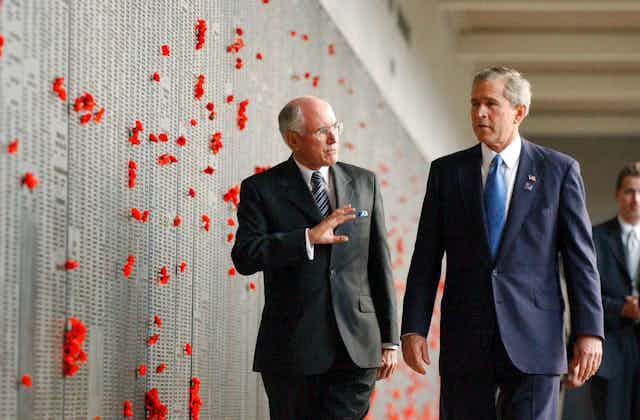Australians regard John Howard as the best living former or current prime minister in handling foreign policy and Tony Abbott as the worst, according to the Lowy Institute’s annual poll.
While Malcolm Turnbull does not do nearly as well as Howard in the poll, he is streets ahead of Tony Abbott.
More than eight in ten (82%) rate Howard as having done a “very good” or “reasonable” job in handling Australia’s foreign policy. He was followed by Kevin Rudd (69%), Bob Hawke (68%), Turnbull (68%) and Paul Keating (66%).
Julie Gillard came next (58%), ahead of Abbott (46%). Abbott was the only prime minister whom a majority say had done a “poor” job (52%).
People were split on whether Rudd would be a good UN secretary-general: 46% say he would be and 49% do not believe so.
In the run-up to the election, the Coalition is people’s clear choice for handling foreign policy. It has a decisive lead over Labor on seven of eight foreign-policy issues asked about. This was a stronger result for it than in 2013, when it led on five of eight.
The Coalition leads Labor on handling the US alliance (57-25%), national security (53-29%), economic management (53-31%), foreign investment (50-33%), managing relationships with China and with Asia (both 47-35%), and handling asylum seekers arriving by boat (47-35%).
Climate change is the only issue on which Labor is ahead (52-31%). Concern about global warming continues to trend up in the poll.
People are divided on whether the relationship with the US or that with China is the more important to Australia, with 43% choosing each. In 2014 only 37% thought China the more important, compared with 48% who said the US.
Nearly three-quarters (74%) are in favour of Australia conducting maritime operations to try to ensure freedom of navigation in the South China Sea. Only 20% are against such action.
More than half are optimistic about the Chinese economy: 52% say China will continue to grow strongly and this will benefit Australia, while 44% believe China’s economy will slow and the Australian economy will suffer.
Nearly half (45%) say Australia should distance itself from the US if Donald Trump wins the presidency; a bare majority (51%) say Australia should remain close regardless of who is elected.
“This result is striking in the context of Australians’ very consistent support for the ANZUS alliance over the history of the Lowy Institute poll,” the institute says.
“In the context of intense media attention on the Trump candidacy and general disquiet about the US political process, the number of Australians who now see the alliance as either very or fairly important to Australia’s security has fallen significantly, down nine points to 71%.
"This is the second-lowest level of support on this measure in our 12-year polling history, although eight points higher than the lowest result of 63% in 2007, towards the end of the presidency of George W. Bush.”
The poll again shows Australians wariness about foreign investment. Following controversy about the future of various agricultural holdings, such as the Kidman empire (which the Chinese have been trying to buy), public opinion has moved even further against foreign investment in Australian farmland – 87% say they are against the government allowing foreign companies to buy Australian farmland. This is six points up on a similar question in 2012.
The poll found optimism about the Australian economy has lifted, after a sharp decline in last year’s poll – 70% are “very optimistic” or “optimistic” about Australia’s economic performance in the world over the next five years. That is a rise of seven points since last year.
The poll of 1202 was done February 26 to March 15.

